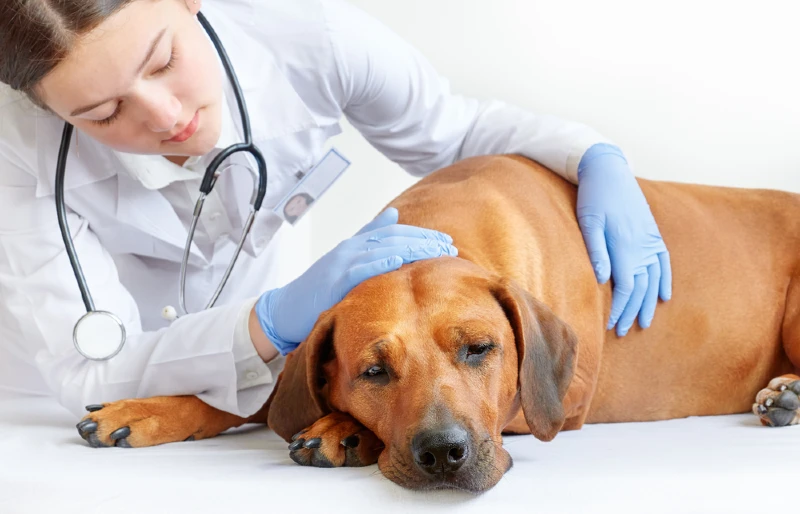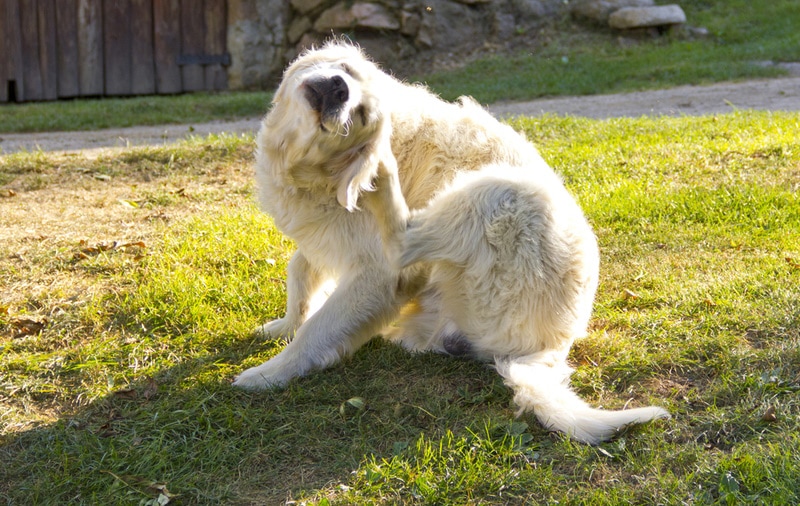Can Dogs Eat Rutabagas? Keep Your Dog Safe!
By Jordyn Alger
Updated on
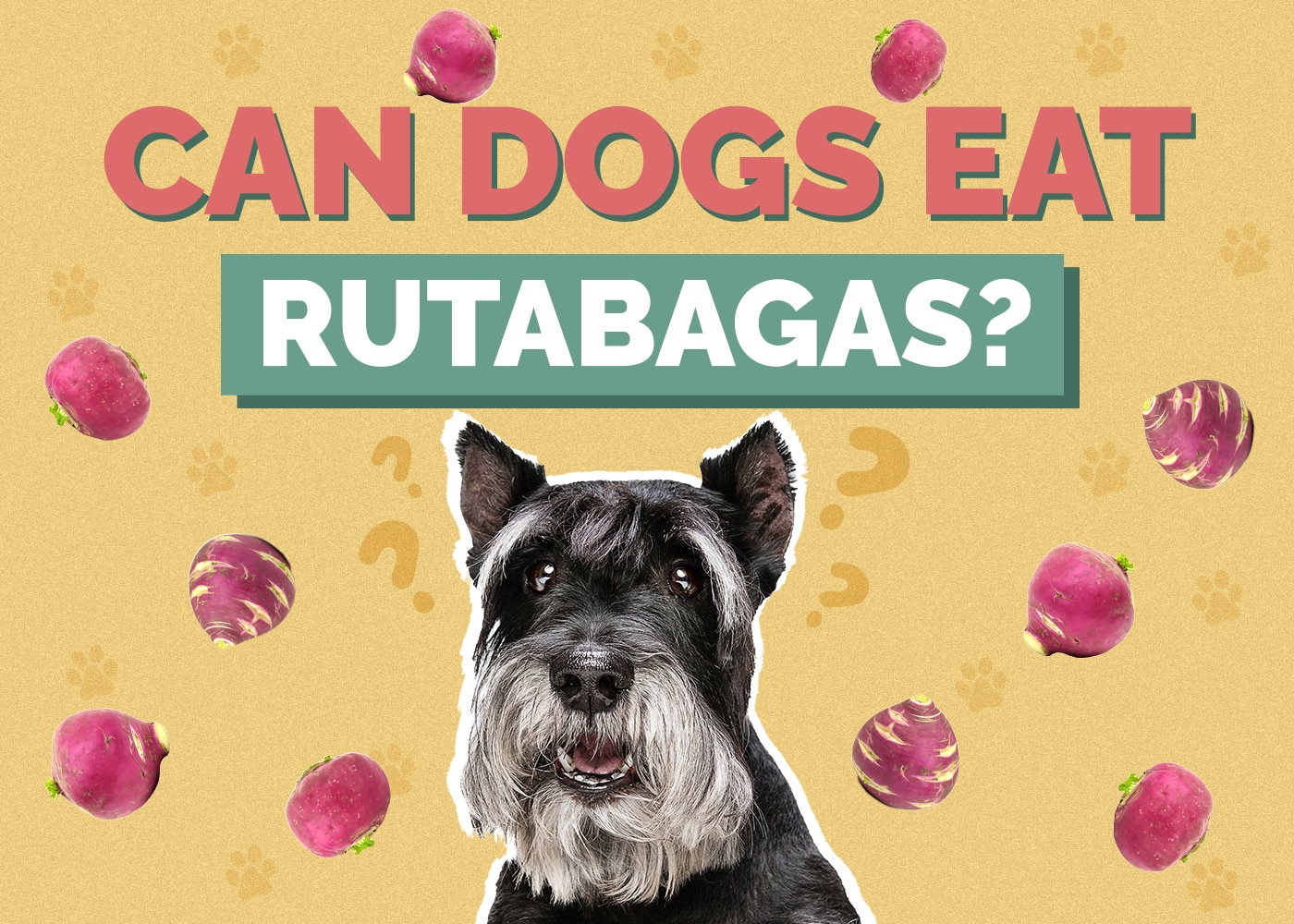
There are several ingredients in dog food formulas these days, and it can be difficult to know which food items are good or bad for our dogs. For instance, some vegetables can have excellent health benefits, while others can be extremely dangerous. So, where do rutabagas fall on that spectrum?
Rutabagas are a type of root vegetable that is generally considered safe and healthy for dogs. To learn more about the benefits of rutabaga as well as how to best feed them to your dog, keep reading below.
What Are the Health Benefits of Rutabagas for Your Dog?
Rutabagas are very healthy vegetables. They are packed with plenty of essential vitamins, such as vitamins C, E, and K. Vitamin K, in particular, is important for the health of your dog’s blood. If your dog is not getting enough vitamin K, he may develop anemia.
Rutabagas are also a great source of calcium, magnesium, iron, zinc, and fiber. The fiber is especially important, as fiber is a vital part of your dog’s digestive health and weight maintenance. So, if your dog has been struggling with his digestive health lately, adding some rutabagas into his diet may give him the support he needs.
Another benefit to rutabagas is that they are low in calories, so they work as a great low-calorie treat for your dog. Other ways that rutabaga can support your dog’s health include cancer-fighting antioxidants and proteins that are vital to growth and recovery.
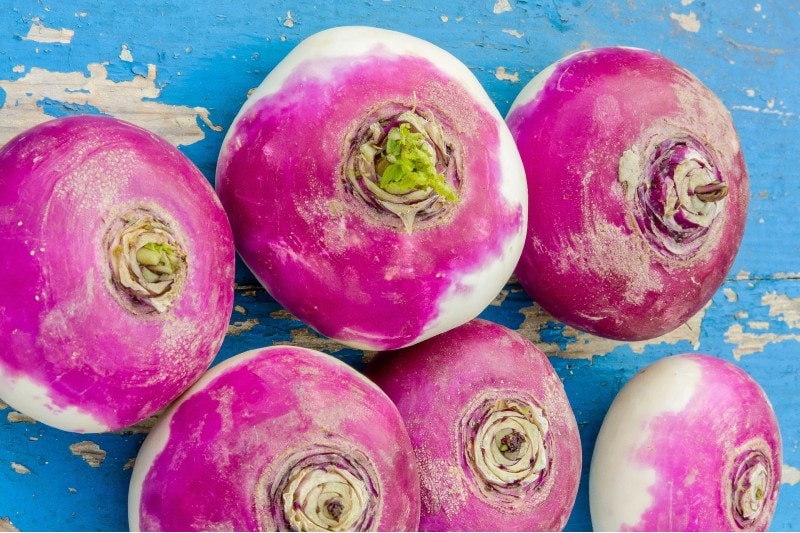
How to Best Feed Rutabaga to Your Dog
Raw or cooked rutabagas are perfectly acceptable for your dog. Be sure to thoroughly wash the rutabaga before offering it to your dog to ensure that no pesticides are still on the vegetable. If you plan to feed your dog raw rutabagas, cut the vegetable into small, bite-sized chunks. This will make it much easier (and safer!) for your dog to chew.
If cooking the rutabagas is more your style, there are a few ways to do so. You can either steam, boil, or roast the rutabagas to prepare them for your dog. However, you will want to avoid using spices, oils, or other additives that you may put in your own food. These are more likely to upset your dog’s stomach.
Are There Any Risks to Feeding Rutabaga to Your Dog?
Risks of feeding rutabaga include allergies or digestive issues, and both are easily avoided. Please consult your vet before feeding anything new to your dog—not only rutabagas.
You can tell if your dog has an allergy to rutabaga by carefully monitoring his response to a tiny morsel of rutabaga. If he experiences skin irritation, itchiness, or stomach discomfort, you should hold off feeding him any more rutabagas.
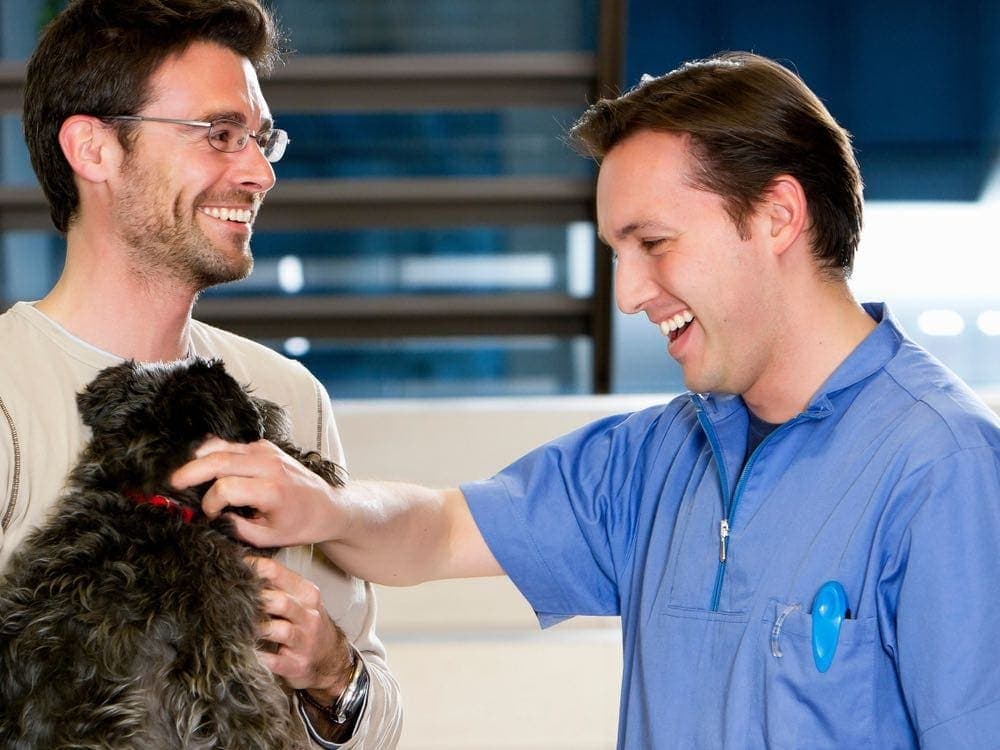
Can Dogs Eat Beets or Turnips?
Beets and turnips are considered root vegetables, just like rutabagas. So, can dogs eat them? Yes, beets and turnips are safe for your dog to eat. Like the rutabaga, they each have health benefits but should be fed to your dog in moderation.
Foods Your Dog Cannot Eat
This article has talked so much about foods dogs can eat, but it’s vital to mention which foods dogs can’t eat. The following are dangerous for dogs to ingest:
- Alcohol
- Avocado
- Chocolate, coffee, and caffeine
- Citrus
- Coconut and coconut oil
- Grapes and raisins
- Macadamia nuts
- Dairy
- Nuts
- Onions, garlic, and chives

Conclusion
Rutabagas can be fed to your dog, and they have plenty of health benefits. So, if you are looking for a healthy treat option for your pup, this root vegetable is something to consider. Be sure to talk to your vet before feeding your dog anything new. Likewise, monitor your dog for any changes when serving him something new to ensure the food agrees with him.




